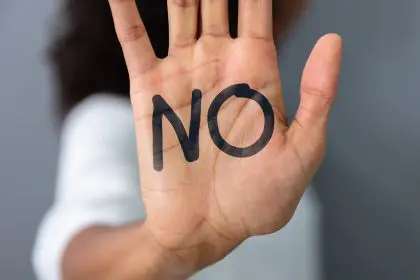In an era where a simple tap on our phones connects us instantly to our inner circle, the boundaries between friendship and therapy have become increasingly blurred. Friends find themselves thrust into the role of impromptu therapists, often receiving lengthy midnight texts about personal crises or family drama that leave them feeling overwhelmed and unprepared.
The weight of digital availability
The constant connectivity through smartphones and social media has created an unspoken expectation of perpetual availability. This around-the-clock access to friends has transformed casual check-ins into impromptu therapy sessions, leaving many struggling to balance supporting their friends while maintaining their own mental well-being.
When friendship meets mental health
The complexity of modern friendships extends beyond casual conversations and social gatherings. Many find themselves becoming emotional anchors for friends in crisis, a role that can quickly become overwhelming. While the intention to help comes from a place of care, this dynamic can create an unsustainable pattern that potentially damages both parties involved.
The hidden toll of being the ‘therapist friend’
Being the go-to person for emotional support might seem like a badge of honor, but it carries significant responsibility. The emotional labor involved in constantly supporting friends through their struggles can lead to compassion fatigue, a state of physical and emotional exhaustion that can affect personal well-being and professional performance.
Understanding friendship limitations
Friends can provide valuable emotional support through listening and sharing experiences. However, they lack the professional training necessary to handle complex mental health issues effectively. This limitation can lead to well-intentioned but potentially harmful advice based on personal experiences rather than professional expertise.
The impact on friendship dynamics
When one friend becomes the primary source of emotional support, it can create an imbalanced relationship. The supporting friend might feel obligated to always be available, while the friend seeking help might develop dependency. This dynamic can strain the friendship and lead to resentment over time.
Recognizing the warning signs
Several indicators suggest when professional help might be more appropriate than friend support. These include recurring conversations about the same issues without resolution, increasing frequency of crisis situations, and discussions involving trauma, abuse, or severe mental health concerns.
The role of professional support
Mental health professionals undergo extensive training to handle complex emotional issues. They provide objective perspectives and evidence-based strategies for managing mental health challenges. Unlike friends, they maintain professional boundaries and have the expertise to guide individuals through serious mental health concerns.
Creating healthy boundaries
Establishing clear boundaries in friendships doesn’t mean being less supportive. It involves honest communication about capacity for emotional support and recognition of professional limitations. This might include setting specific times for deep conversations or being upfront about when a situation requires professional intervention.
Alternative support systems
When professional therapy isn’t immediately accessible, several alternatives can provide structured support. Support groups, mental health apps, and community resources offer valuable assistance while maintaining friendship boundaries. These options can bridge the gap between casual friend support and professional help.
The art of asking for support
Learning to ask for support appropriately can strengthen friendships rather than strain them. This involves checking in with friends about their capacity to listen, being mindful of timing, and respecting their boundaries. Simple practices like asking “Do you have the emotional bandwidth for a serious conversation right now?” can make a significant difference.
Digital boundaries in friendship
Technology has transformed how we seek and provide emotional support. While digital platforms offer convenient ways to stay connected, they can also create pressure for immediate responses to emotional needs. Setting digital boundaries, such as designated offline times or response expectations, helps maintain healthy friendship dynamics.
Building resilient support networks
Developing a diverse support network prevents overreliance on any single friend. This network might include different friends for various types of support, family members, mentors, and professional resources. Having multiple sources of support ensures more sustainable and healthy relationships.
The future of friendship and mental health
As awareness of mental health continues to grow, the relationship between friendship and emotional support evolves. Understanding the distinction between friendly support and professional help becomes increasingly important for maintaining healthy relationships and ensuring proper care for mental health concerns.
Moving forward with awareness
The key to navigating modern friendships lies in understanding and respecting boundaries while maintaining supportive relationships. This awareness allows friends to provide meaningful support without compromising their own well-being or stepping into roles better filled by mental health professionals.
In conclusion, while friends play an invaluable role in our support systems, recognizing the limitations of friendship-based emotional support is crucial for maintaining healthy relationships. By understanding when to seek professional help and how to set appropriate boundaries, we can preserve our friendships while ensuring everyone receives the proper support they need. The evolution of modern relationships continues to challenge traditional friendship dynamics, but with awareness and intention, we can create sustainable support systems that benefit everyone involved.
















